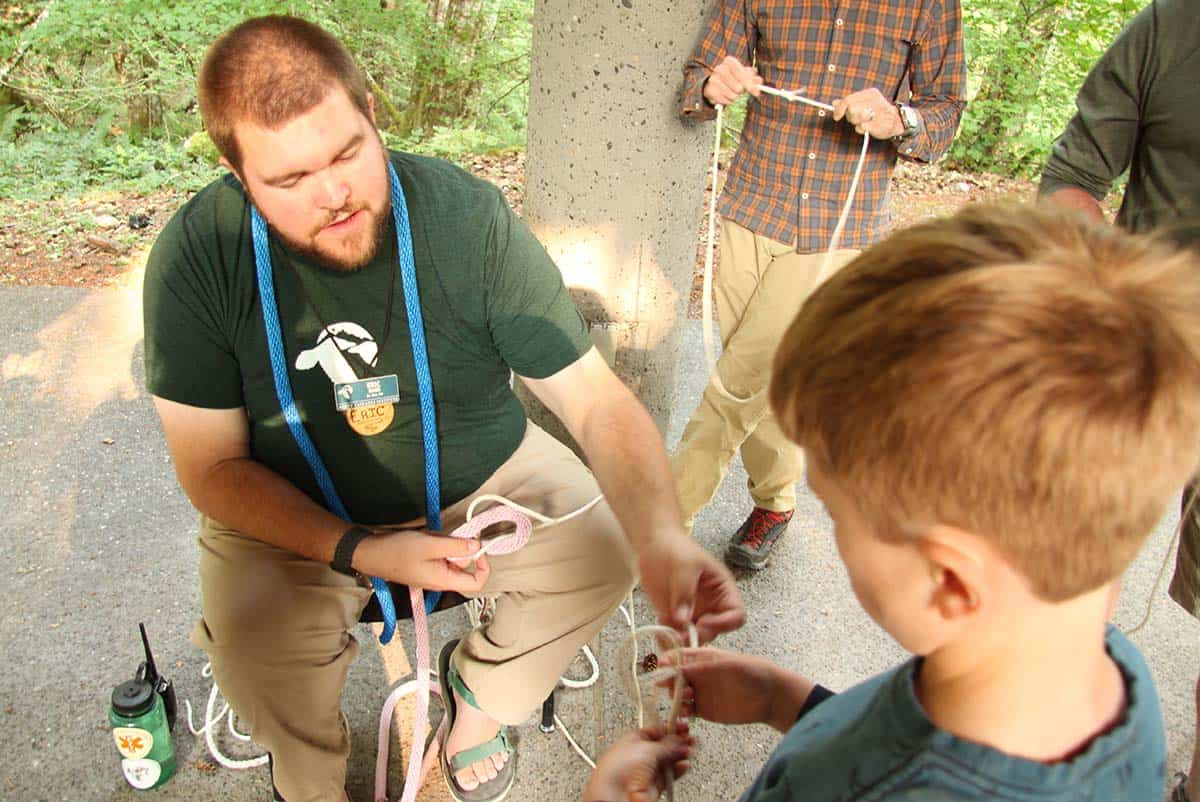
Eric Buher’s Mountain School Journey
I grew up in La Conner, Washington, at the mouth of the Skagit River, and on the traditional homelands of the Swinomish, Samish, Upper Skagit, and Kikialis peoples. As a child, I would occasionally camp and hike with my family—“front-country” excursions, mostly in the summertime. I became a Cub Scout in second grade, and experienced the outdoors much more deeply through the Scouting program as I grew up.
The La Conner School District scheduled various outdoor education experiences for their middle school students, including attending Camp Orkila on Orcas Island in sixth grade, and then Mountain School in the North Cascades in seventh grade. By that time, I had grown quite a bit in my outdoor experience and was more than ready to explore the North Cascades with my classmates.
While it has been a while, some of my favorite memories of Mountain School include:
- Sleeping in green canvas tents at the Newhalem Creek Campground (the Environmental Learning Center was nearly a decade in the future)
- Eating in the rain, clustered around a tarp shelter with an open-air kitchen
- Learning that a lichen is a combination of fungi and algae (Because “Freddy Fungus took a ‘lichen’ to Alice Alga”)
- Being taught that the slime on the back of a banana slug is a natural anesthetic—and being the only one of my classmates brave enough to give it a lick! (While it was a stunning encounter, we no longer encourage students to experience nature by licking it!)
More broadly, I remember the personal impact of exploring the outdoors together with my classmates. It was an environment that I had grown increasingly comfortable in through my Scouting experiences, but that many of my peers had not spent time in. Even then, I had some chances to be a guide and educator for my classmates.
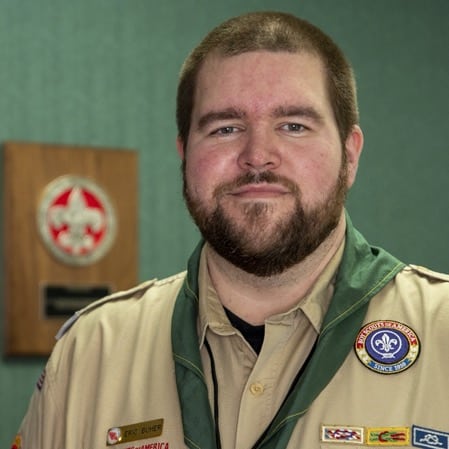
As a high school student, my most significant outdoor experience was working as a staff member at Fire Mountain Scout Camp, on the slopes of Cultus Mountain outside of Mount Vernon. I served as a program counselor: Teaching outdoor skills, singing songs around the campfire and helping young people feel comfortable in the outdoor space of camp. My experiences as a staff member are what ultimately led me to pursue education as a career.
After high school, I attended Western Washington University, pursuing training as a teacher. I eventually graduated with my B.S. in mathematics and my teaching certificate. One of the most enduring lessons I take from a decade in the classroom is exactly this: that I was not a “math teacher,” but rather a teacher of people, with a subject area of mathematics.
I have many stories about both the inspiring successes and the frustrating failures in teaching people to use math. The satisfaction of witnessing an a-ha moment—when a concept finally clicks in a student’s mind—is difficult to find anywhere else.
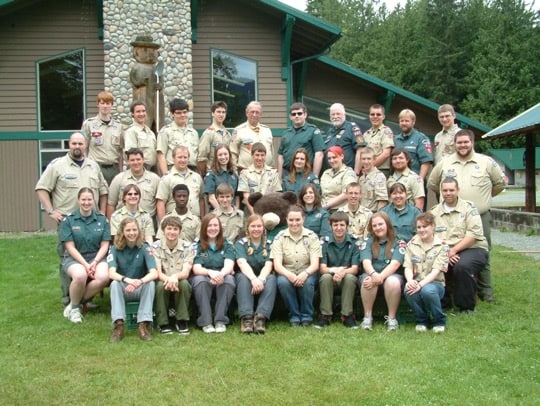
After a few years of teaching, I re-engaged with the Scouting program as an adult volunteer. This return to facilitating outdoor experiences for young people reawakened my love for the work, and ultimately led me to depart the school system in search of a different sort of classroom, leading me to North Cascades Institute.
In the Summer of 2017, I arrived at the North Cascades Environmental Learning Center as part of the Institute’s 17th Masters of Education cohort, or “C17.” As a graduate student, I had the opportunity to interact with every facet of the Institute: we worked with every program team; the marketing, fundraising and finance departments; the facilities and maintenance staff; and the board and Institute leadership. I had at one time imagined starting my own environmental education organization and my experiences as a member of C17 helped me understand exactly what it would take to accomplish such a thing.
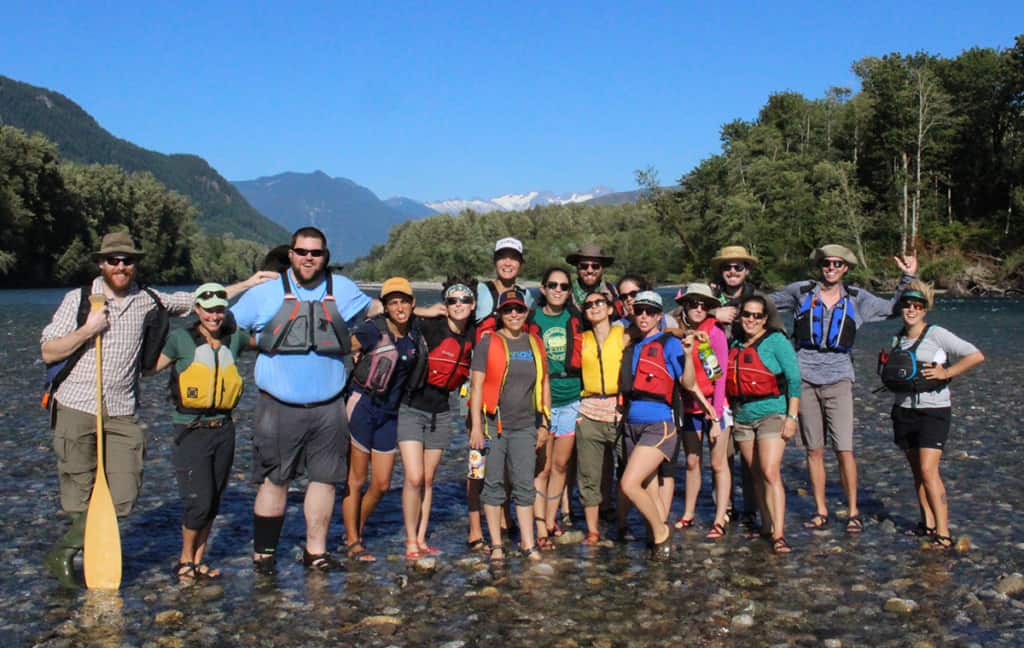
One lesson that had a powerful impact on my thinking centered on complex systems— illustrating how even a small change can have dramatic impacts across all parts of the system. I have a vivid memory of the cohort standing on the sandbar behind the Blue House property in Marblemount, frantically circling each other as we reacted to changes in our human system. The connection to the Skagit River flowing next to us — and the snow-capped peaks above us — was inescapable. This idea was a recurring theme throughout my time at North Cascades Institute, and continues to influence how I plan, observe and act.
A core experience I had as a grad student was serving as a Mountain School instructor. While being a camp counselor had somewhat prepared me for the role, there is nothing quite like serving as a field naturalist to a group of fifth graders.
A standout moment from this time begins with a rambunctious school group that had simply refused to come together as a team on their first day.
I had planned activities throughout the second day with a focus on using hand lenses, but decided I didn’t trust the group with these items, and so kept them in my backpack. However, leading the group hiking up to Sourdough Creek Falls and back down accomplished more than I could have imagined then the group was ready to learn.
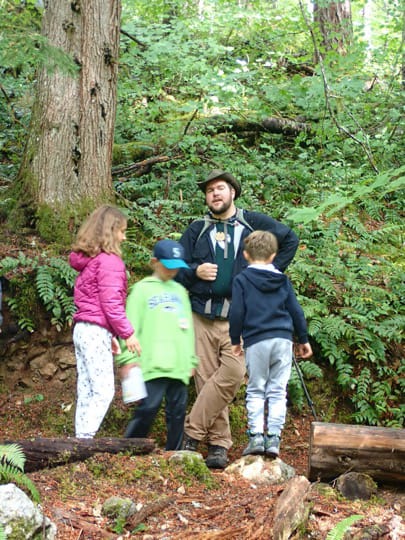
When one student spotted some young Pine Drops on the side of the trail, I was able to reach into my backpack and quickly produce tools to take a deeper look—leading to an impromptu 45-minute dive into investigating micro-scale nature throughout the area.I use this moment of trail magic as a discussion point on group management all the time.
Having been both a student and an instructor at Mountain School, I feel like I’ve come full-circle to now be the Manager of this much-beloved program. This Fall is an especially exciting moment in the history of Mountain School. Not only are we once again welcoming students to the Learning Center for overnight residential Mountain School after a period of modified programming through the pandemic, but we are also rolling out an all-new curriculum that is the product of much dedicated and inspired work over the past three years.
I am so impressed with the efforts of the folks who have had their hands on the new curriculum, and feel privileged to be able to finally bring it into the field. The student experience will be built upon the Next Generation Science Standards, guided by principles of Student-Centered Instruction and Culturally Responsive Teaching.
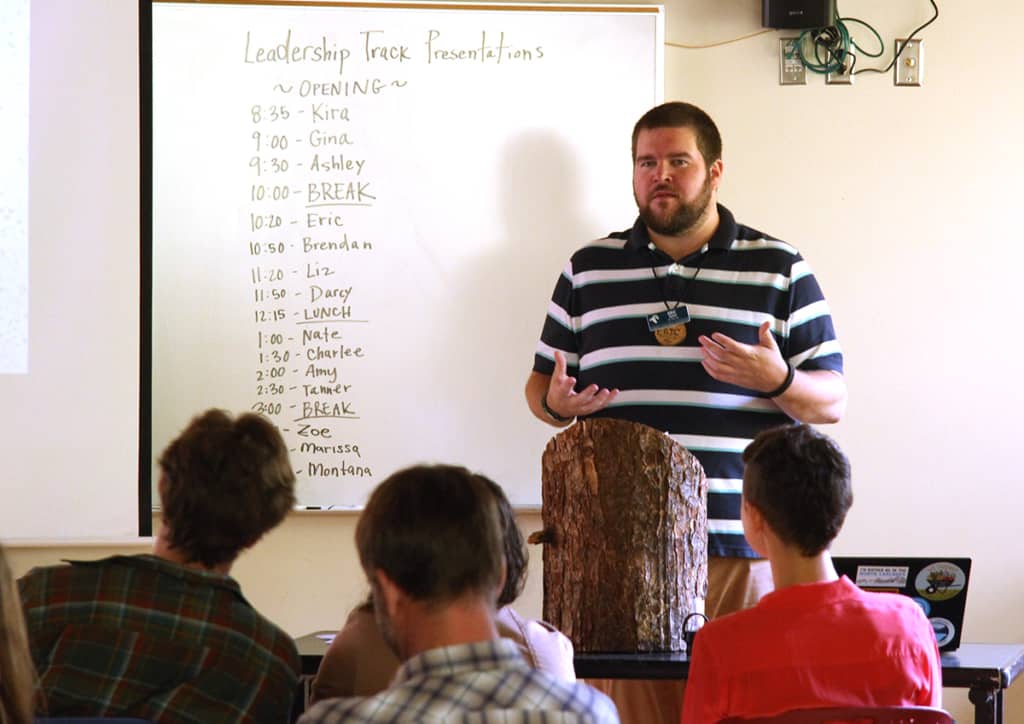
Students will still form trail groups, explore creek beds and forest trails, and learn about predator-prey relationships through a good game of Camouflage! But now they will also be more intentionally-guided to reflect on the connections between this place in the mountains and their places at home.
Today, as I sit at my desk in the Environmental Learning Center, I am reminded of the lesson from the sandbar about complex systems. In the grand scheme of things, students’ experience at Mountain School is all too short (only three days). How much impact can such a brief moment in time have on the shape of their thinking or the course of their lives? Then again, my own trip into the North Cascades as a Mountain School student continues to contribute to dramatic shifts in my life’s direction.
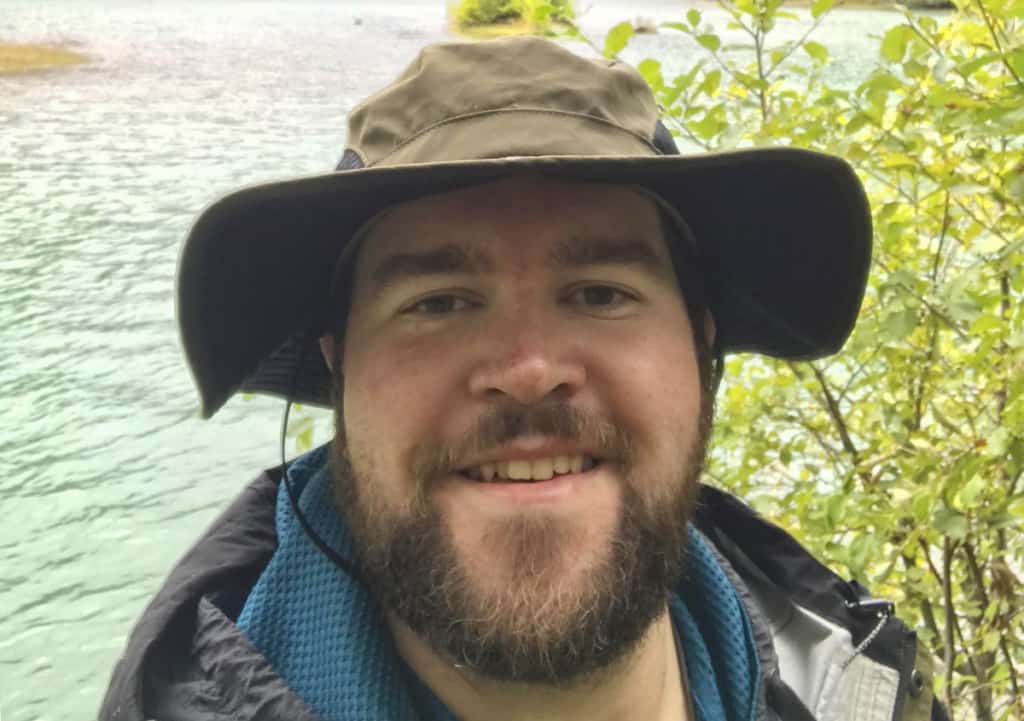
For now, we have staff to train and lessons to plan; preparing personal transformative experiences for a brand new crop of Mountain School students. It’s great work, and I can’t wait to get started!
Please help sustain Mountain School for years to come by making a gift today at ncascades.org/donate.


We’re so glad you’re back, Eric!
Eric is the personification of what we aspired to with the grad program! Congrats to you, Eric. May Mountain School thrive under your leadership and move to a new era in the history of this amazing program.